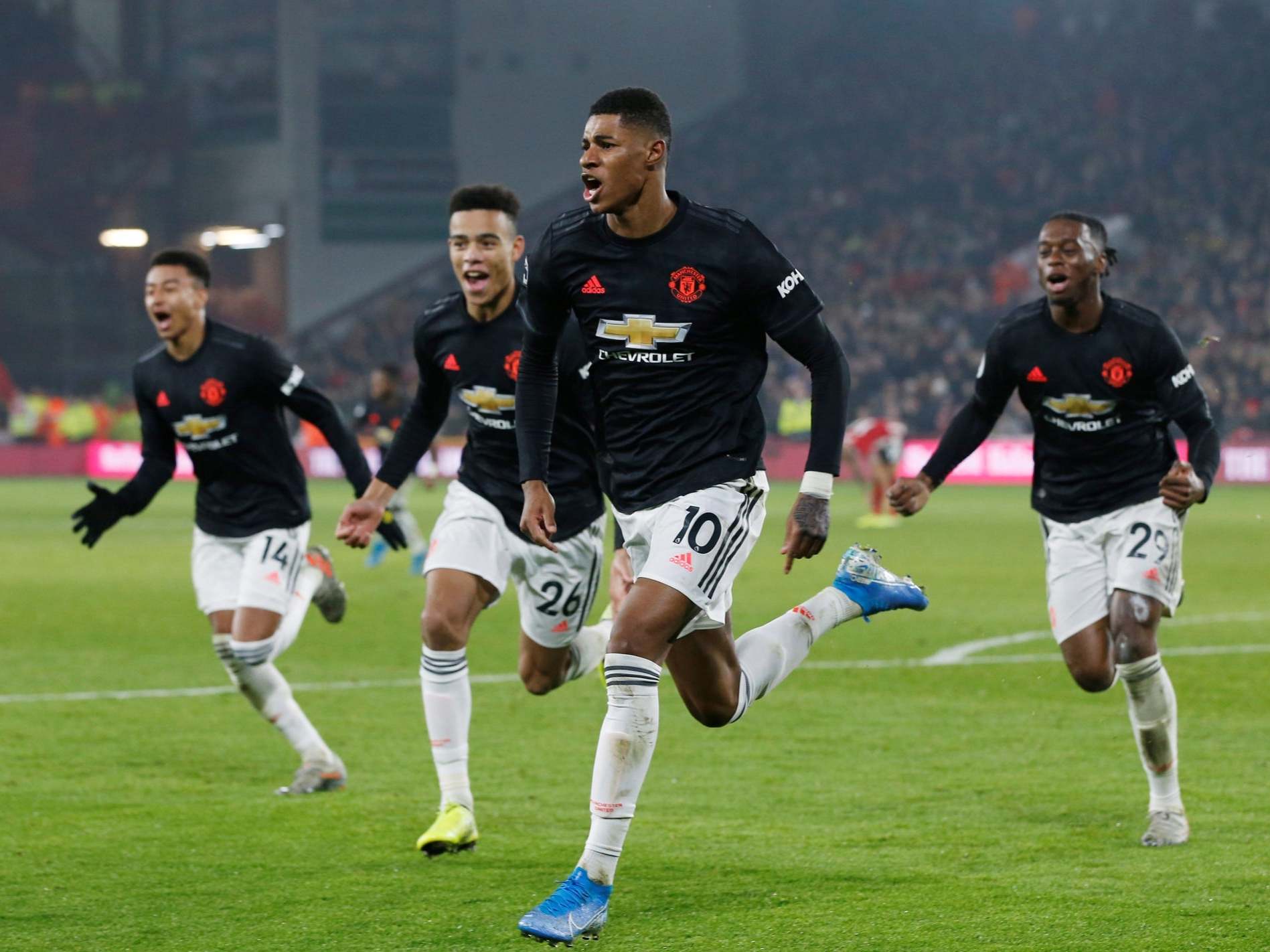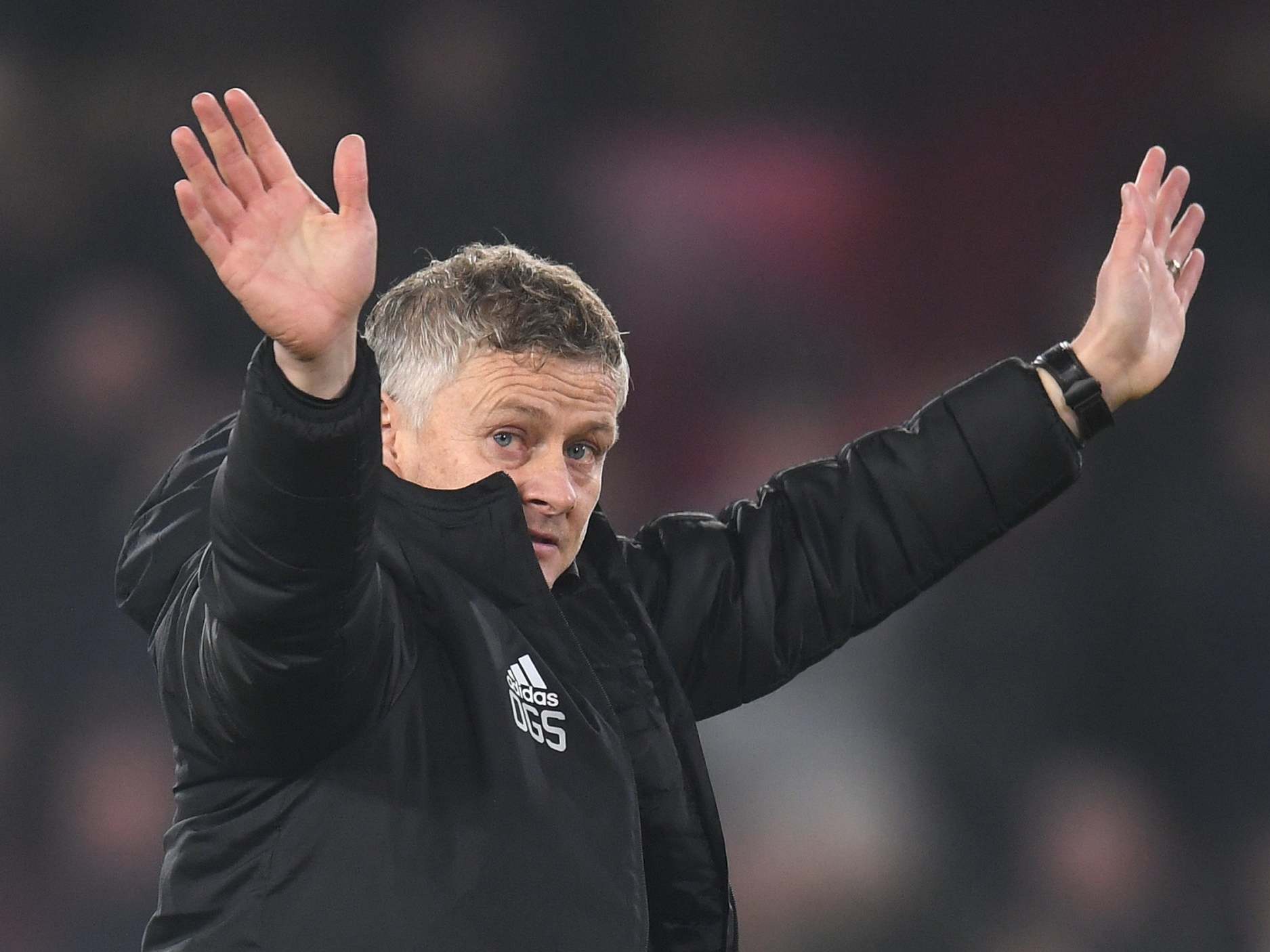Manchester United: Ole Gunnar Solskjaer sees ‘massive differences’ but similarities are more concerning
The Red Devils flipped the game on its head against Sheffield United only to squander their lead in a thrilling 3-3 draw

Your support helps us to tell the story
From reproductive rights to climate change to Big Tech, The Independent is on the ground when the story is developing. Whether it's investigating the financials of Elon Musk's pro-Trump PAC or producing our latest documentary, 'The A Word', which shines a light on the American women fighting for reproductive rights, we know how important it is to parse out the facts from the messaging.
At such a critical moment in US history, we need reporters on the ground. Your donation allows us to keep sending journalists to speak to both sides of the story.
The Independent is trusted by Americans across the entire political spectrum. And unlike many other quality news outlets, we choose not to lock Americans out of our reporting and analysis with paywalls. We believe quality journalism should be available to everyone, paid for by those who can afford it.
Your support makes all the difference.When Sheffield United were still two goals to the good, while the first lashings of margarine were being applied to celebratory chip butties, another dismal Manchester United away performance came to the forefront of Ole Gunnar Solskjaer’s mind.
At Goodison Park on Easter Sunday earlier this year, Manchester United were dreadful: second to every ball, too slow to track runners, out-thought and out-played at every turn. It was the low point of Solskjaer’s time in charge to date. In fact, it still is. But only just.
The first 71 minutes of Sunday’s trip to south Yorkshire were as bad as that afternoon in April, if not worse. If the day had ended in defeat then it would surely have risen to the top of the rankings – or bottom, depending on your perspective.
But unlike at Goodison, there was a response. Incredibly, United scored three goals through three different academy graduates, all from passages of uninhibited attacking football, to complete one of the most unlikely of comebacks.
It was totally at odds with everything that had come before it and everything which came after. It was seven minutes of Solskjaer self-actualisation, his entire philosophy vindicated. And then Oli McBurnie scored a 90th-minute equaliser.
Even after that late setback, the extraordinary turnaround which had preceded it was enough for Solskjaer to treat a “very poor” performance as a net positive. It was particularly encouraging when compared to Everton last Easter.
“It looked like [we had] fears first half when you’re 2-0 down, but don’t give up,” Solskjaer said in his post-match press conference. “You don’t expect them to give up. Last year [at Goodison] we did, this year we didn’t. It’s a massive, massive difference in that respect.”
United turned defeat into an unlikely draw, an unlikely draw into an incredible victory, and an incredible victory into just an unlikely draw again. Still, the likes of Marcus Rashford, Daniel James and Mason Greenwood deserve credit for spearheading the fightback.

But while Solskjaer speaks of “massive, massive differences”, it is hard not to think the similarities with Everton and many other disappointing results since taking charge on a permanent basis at the end of March.
United once again dominated possession but struggled to use it well. Under Solskjaer, they have won only 43 per cent of games in which they have had the majority of the ball, but have won 60% of games in which they have lost the battle for possession.
Creating chances remains a problem. United produced only five shots on target and only one before that isolated late flurry of goals to turn the game on its head. For all but those seven minutes, Sheffield United comfortably resisted United’s attack.
And then there is the familiarity of the faces. Seven of those who played in the defeat to Everton started at Bramall Lane on Sunday. Of the 18 named in the match-day squad back in April, 15 are still at the club. Only one – Romelu Lukaku – has left permanently.

Solskjaer reacted to that defeat impressively, defiantly claiming that he would be a successful United manager and that “some players” present that day would not be part of his success.
Rebuilding a squad takes time, of course, and can be damaging if it is rushed. But back then, it seemed fair to expect that more than one of the players responsible for that performance would depart permanently over the course of the next seven months.
There are ultimately two ways to judge United’s performance on Sunday: by the similarities with the last seven months or the difference made in those seven minutes. It is tempting to suggest that rush of goals could be a turning point, but you fear the problems run deeper.
Join our commenting forum
Join thought-provoking conversations, follow other Independent readers and see their replies
Comments